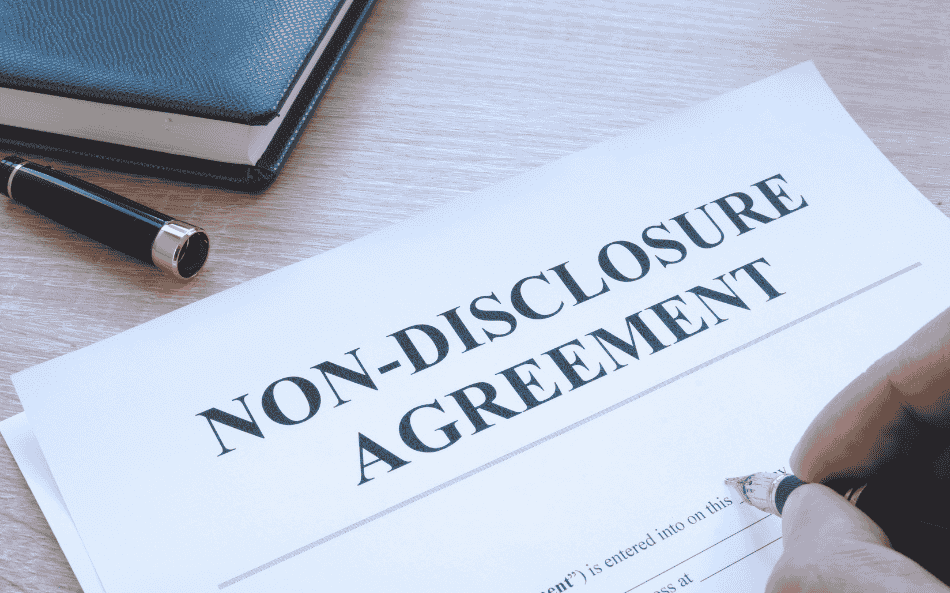By Rayna Sparkes, Partner –
In today’s fast-paced business environment, protecting sensitive business information is crucial. Many companies underestimate the importance of Non-Disclosure Agreements (NDAs)—and by the time they realize it, the damage may already be done. Not having an NDA in place can put your business at serious risk.
What Happens if You Don’t Have an NDA?
- Loss of Confidential Information: Without an NDA, confidential business information such as trade secrets, financial details, or future plans may be shared freely. This leaves your business exposed to competitors or outside parties.
- Competitors Gaining an Advantage: If your proprietary knowledge falls into the wrong hands, competitors can use it to gain an edge in the market, potentially putting your business at risk.
- Intellectual Property Vulnerabilities: Your valuable intellectual property—such as designs, patents, or processes—could be compromised or even stolen if there’s no legal agreement in place to protect it.
- Damaged Business Relationships and Eroded Trust: Trust is the foundation of business partnerships. Without an NDA, misunderstandings and breaches of confidentiality could harm relationships and damage your reputation.
- Missed Business Opportunities: Many companies require NDAs before entering into negotiations or partnerships. Not having one in place could result in missed opportunities and potential deals.
An NDA is a legally binding contract that establishes a confidential relationship between parties. It ensures that any confidential information shared during business dealings is protected. NDAs are essential in various situations, including business negotiations, employment contracts, and partnership agreements.
What Should an NDA Include?
To fully protect your business, it’s important to understand the key elements of an effective Non-Disclosure Agreement. Here are the essential terms to include:
- Confidential Information: This section defines what information is considered confidential. It’s crucial that this is clearly outlined to avoid misunderstandings. A broad definition of confidential information offers the most protection, but the receiving party may prefer a narrower definition for clarity.
- Return or Destruction of Confidential Information: Once the business relationship ends or the information is no longer needed, the NDA should require that confidential information be returned or destroyed. This ensures that your business’s sensitive data remains secure even after the agreement concludes.
- Confidentiality Period: Most NDAs specify a time period for how long the information must be kept confidential. This can range from a few years to being indefinite until the information becomes public. Clarifying this upfront is essential to protect your interests. If there is an expiration to your NDA you’ll want to make sure that at least your trade secrets will be protected indefinitely by carving those out from the expiration date because trade secrets are only protected for so long as they are secret.
- Standstill Clause: This provision prevents the receiving party from pursuing acquisition-related actions or negotiations with other parties during the agreement. It gives both parties the space to finalize their deal without interference from competitors or other potential buyers.
Why Your Business Needs an NDA
NDAs aren’t just legal formalities—they’re critical tools for protecting your business’s confidential information. Whether you’re engaging in a potential business deal, hiring new employees, or entering into a partnership, an NDA helps ensure that sensitive information is protected.
Failing to use an NDA can leave your business vulnerable to the risks mentioned above. A well-drafted NDA not only protects your intellectual property but also helps foster trust between parties, ensuring that both sides are clear on their obligations.
Get Legal Help with NDAs Today
Need assistance with drafting or reviewing a Non-Disclosure Agreement? Contact Rayna at Momentus Legal for legal guidance on protecting your confidential information and safeguarding your business.
Contact Rayna Sparkes for more information:
- Email: rayna.sparkes@momentuslegal.com
- Phone: 541.221.8580
- LinkedIn: @RaynaSparkes





